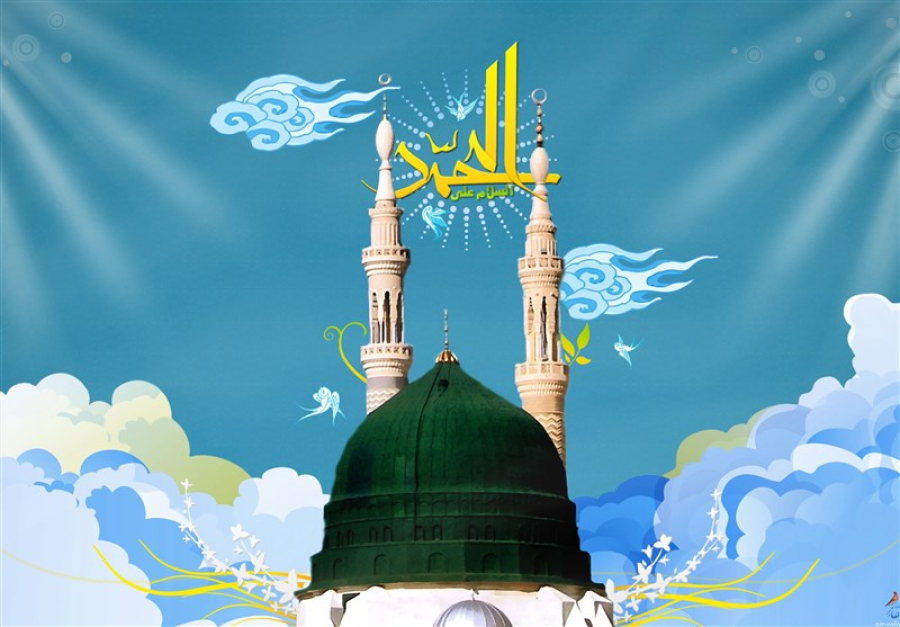The night of the birth of the Holy Prophet (PBUH) is a very blessed night, and Sayyid has narrated that on such a night, one year before the migration, the Holy Prophet's Ascension took place.
According to the Imamiyyah scholars, it is the blessed birthday of the Seal of the Prophets, Muhammad ibn Abdullah, peace be upon him and his family, and it is known that his blessed birth took place in Mecca, in his own house, on Friday at dawn in the Year of the Elephant during the reign of Anushirwan [The late Hajj Sheikh Abbas (may Allah have mercy on him) referred to Anushirwan as Anushirwan the Just in the text of the book and quoted an explanation of his justice from Majlisi I in the margin, but by referring to historical books, especially Ferdowsi’s Shahnameh, this meaning is obtained that Anushirwan was a fire-worshipper, one of the arrogant and oppressors of the Iranian nation, and in three days he brutally killed 100,000 opponents of his oppression. For this reason, I refrained from using the word just and I also reject the explanation from Majlisi I.]
Also, on this honorable day in the year 83, the birth of Imam Sadiq (a.s.) took place, which increased the virtue and honor of this day. In any case, this day is a very honorable day and there are several actions for it:
First:
Ghusl.
Second:
Fasting, which has great virtue and it is narrated: Whoever fasts on this day, God will write for him the reward of fasting for a year, and this day is one of the four days that are distinguished by the virtue of fasting throughout the year.
Third:
“Visit to the Prophet (s.a.w.s.)” from close up and “visit to that Prophet” from afar.
Fourth:
“Visit to the Commander of the Faithful (a.s.)” is the same pilgrimage that Imam Sadiq (a.s.) visited and taught to Muhammad ibn Muslim, and will be discussed in the “Chapter of Visits” Insha Allah.
Fifth:
When the day dawned, he prayed two rak'ahs, in each rak'ah, after Surah "Al-Hamd" he recited Surah "Qadr" 10 times and Surah "Tawheed" 10 times. After the greeting, he sat in his prayer room and recited this supplication: "O Allah, You are the Living, You will never die.. until the end."
«اللهم أنت حی لا تموت.. إلى آخره»
This is a detailed supplication. Since I did not find its chain of transmission to the infallible, I considered it more important to observe brevity. Whoever wishes to do so should refer to "Zad al-Imad."
Sixth:
Muslims must consider this day great and give charity, make the believers happy, and go on pilgrimage to the holy sites. In "Iqbal", Sayyid has mentioned an explanation of the necessity of celebrating this day and said: I found a group of Christians and a group of Muslims who celebrated the birthday of Jesus (peace be upon him) in an extraordinary way, and I was surprised that Muslims could agree to celebrate the birthday of their Prophet, who is the greatest of all prophets and is of such greatness, in a way that is much more insignificant than the Christian celebration of the birth of Christ.

